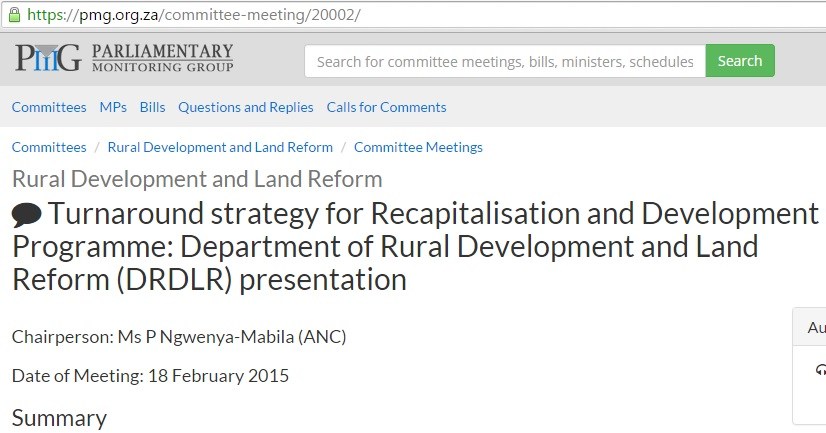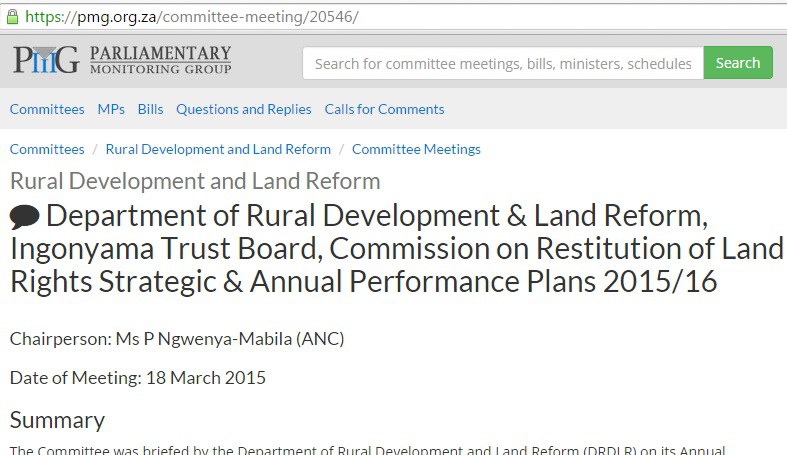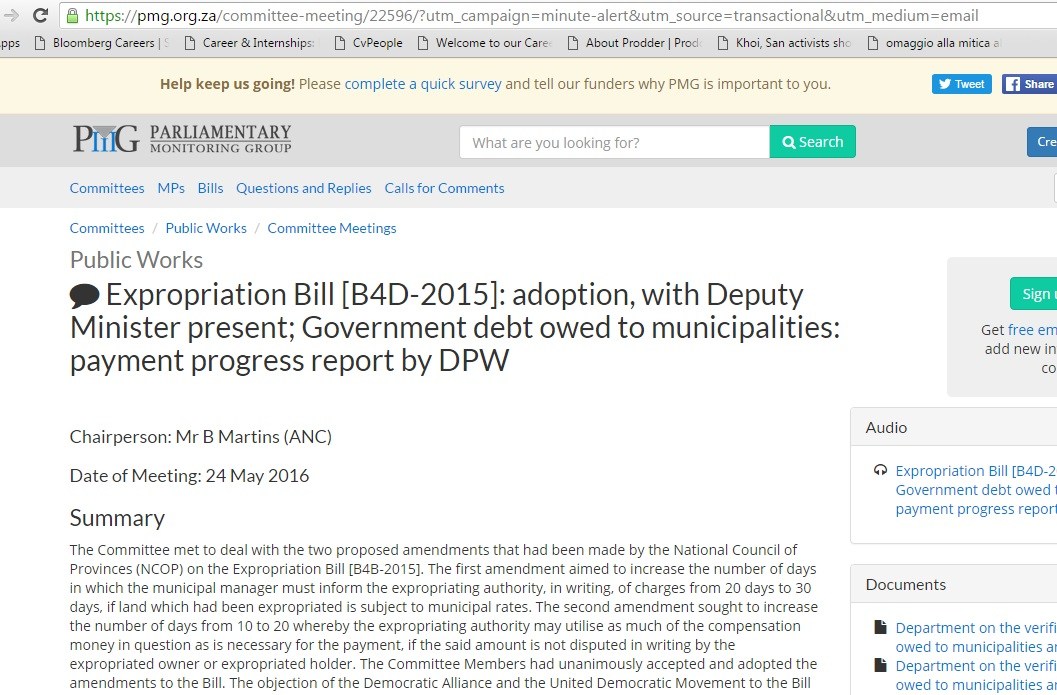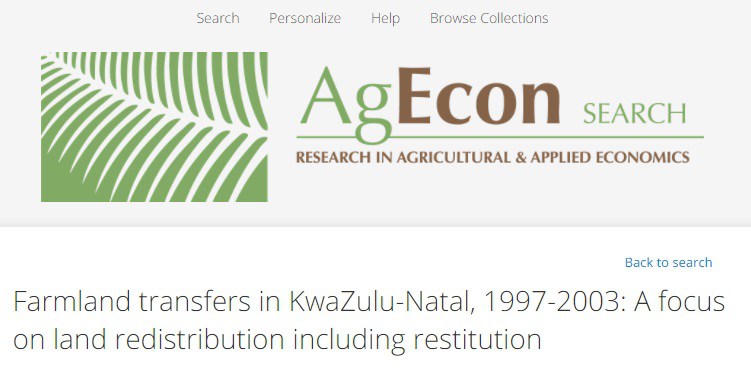Turnaround strategy for Recapitalisation and Development Programme: Department of Rural Development and Land Reform (DRDLR) presentation
The turnaround strategy for the Recapitalisation and Development Programme (RADP) was presented against the backdrop of the Committee’s public hearings on 4 and 5 February 2015 on the implementation of the programme. The evaluation process conducted by the Department of Performance Monitoring and Evaluation (DPME) indicated that even though RADP had made some progress towards achieving its intended objectives, there was room for significant improvement.








